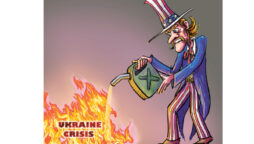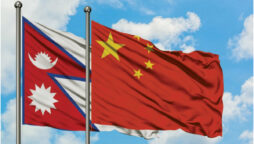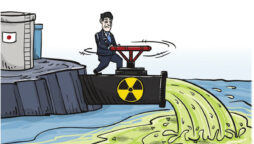
Western sanctions may stop Russia’s growth but not the Ukraine war
From the beginning of the Ukraine conflict, sanctions are the part of a Western strategy. They cannot fight militarily (since Ukraine is not a NATO member state), so they’re fighting financially through sanctions.
Boycotts, embargoes and trade wars, sort of like economic warfare, that are very much on. These tactics may be different but the end goal is the same, to make Russia pay, to squeeze the Russian economy.
This raises the question that how’s that going after the first 100 days of the Russian invasion? Well, the sanctions are definitely biting. According to the Institute of International Finance (IIF), the Russian economy will shrink by 15 per cent this year, and by three per cent in 2023.
If we put it together, this means that 15 years of economic gains could be wiped out in Russia and the numbers do support this as well. Russia’s inflation is at 17 per cent, unemployment is projected to hit 9 per cent and more than one thousand companies have ended their operations in Russia.
This leaves the question that what do people do? Many Russians are packing their bags and leaving, sort of like a brain drain. Three hundred thousand Russians had left their country by mid-March. At this rate, 10 per cent of Russia’s IT workforce could leave.
But the biggest hit is energy, Russia was once called a gas station pretending to be a country, that’s how much energy they sold in 2021. Their total revenue was $235 billion, around half of this came from Europe but not for long.
Europe is planning to end Russian energy dependence by the end of this year. If that happens, Russia will have to find new buyers which means new pipelines, new payment systems, new contracts and none of this will happen overnight. So, Vladimir Putin may or may not accept it but the Russian economy is certainly hurting.
Does that mean the sanctions are a complete success? The answer is no. War is not about military victories, war is also about achieving political goals. The same logic applies to sanctions, they are not just about crippling a country but are also about achieving the overall political goal.
What was the goal in this case? To stop the war. Has the West achieved that? Well, not yet. They have stopped Russia’s economic growth but not the war in Ukraine. In fact, Russia is intensifying its strikes, taking more cities and issuing more threats. So, who exactly are the sanctions hurting? The rest of the world.
Let’s focus on two important commodities; oil and food. Both commodities are becoming more expensive every day. Western sanctions are making oil expensive. Russia’s black sea blockade is making food expensive and the result is this; everybody is suffering.
In Europe, gas prices are up 40 per cent. In Africa, wheat prices are up 60 per cent. In South Asia, countries are running out of foreign exchange and in the US, gasoline has topped five dollars per gallon.
In other words, the sanctions have globalised economic pain. If Russia goes down, it won’t go alone. The ripples will be felt across the world and this raises two questions; number one, why must Nepal or Ghana or Egypt pay the price for Russia’s war? And number two, is it time to rethink economic sanctions? For the first question, we can blame globalisation, think back to the 2008 recession; the housing bubble burst in the US, American banks messed up their policy, yet the entire world suffered.
That is the downside of globalisation. The good times are globalised but so are the bad times which brings us to the second question, should we rethink sanctions after all when have sanctions worked? Not against North Korea, not against Iran, not against Venezuela and now not against Russia.
In fact, sanctions can be counterproductive, they can galvanise the public; take Iran or North Korea, for instance, Western sanctions are a unifying force for these countries. Leaders use sanctions to rally their public, that’s one reason why sanctions fail.
The other reason is exemptions, most sanctions leave out certain commodities, in Russia’s case they have left out energy because it does not suit the West.
The West may have agreed to phase out Russian energy but other countries can still buy it, for example; India and China have increased Russian energy purchases.
It may take time but gradually the oil money is going to return to Russia and that is why sanctions fail because they’re always half-hearted, sort of like the middle part; a little less than military intervention but more than condemnation.
Catch all the Breaking News Event and Latest News Updates on The BOL News
Download The BOL News App to get the Daily News Update & Live News.










 Read the complete story text.
Read the complete story text. Listen to audio of the story.
Listen to audio of the story.